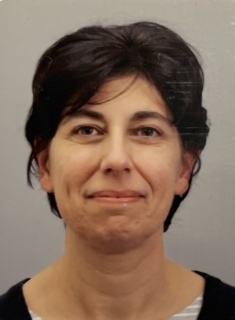

Daniela Carulli
Postdoc
About Daniela
Research
Daniela Carulli’s research is focused on the study of molecular mechanisms of structural plasticity in the brain. Plasticity is the ability of neurons to remodel their connections and is a fundamental requisite for learning and memory as well as recovery after brain damage. Plasticity is heightened during “critical periods” of postnatal development and decreases progressively with age. The plastic capabilities of neural circuits are determined by the balance between extrinsic inhibitory molecules and intrinsic neuronal growth-properties. Defining strategies that allow the targeted modulation of these growth-regulatory mechanisms is crucial to improve plasticity, and, as a consequence, restore cognitive functions during aging or after brain injury.
Growth-inhibitory molecules of the extracellular matrix accumulate around the soma and dendrites of certain neurons during postnatal development, forming so-called perineuronal nets (PNNs). PNN formation contributes to the closure of critical periods for plasticity. The Verhaagen group together with Carulli found that the chemorepulsive axon guidance protein Semaphorin3A (Sema3A) is localised to PNNs, and mediates PNN-mediated restriction of plasticity. Aim of D. Carulli’s research is to elucidate the role of PNN-associated Sema3A in the regulation of cognitive processes, in both physiological and pathological conditions, such as Alzheimer’s disease.
Biosketch
Daniela Carulli was trained in Biology. She obtained a PhD degree in Neuroscience from the University of Turin (Italy), under the supervision of Piergiorgio Strata, and received post-doctoral training in the laboratory of James Fawcett at the Brain Repair Centre of the University of Cambridge (UK). She was appointed as assistant professor at the University of Turin. She is currently a senior scientist in the Laboratory for Neuroregeneration at the Netherlands Institute for Neuroscience, headed by Joost Verhaagen.
Support our work!
The Friends Foundation facilitates groundbreaking brain research. You can help us with that.
Support our work